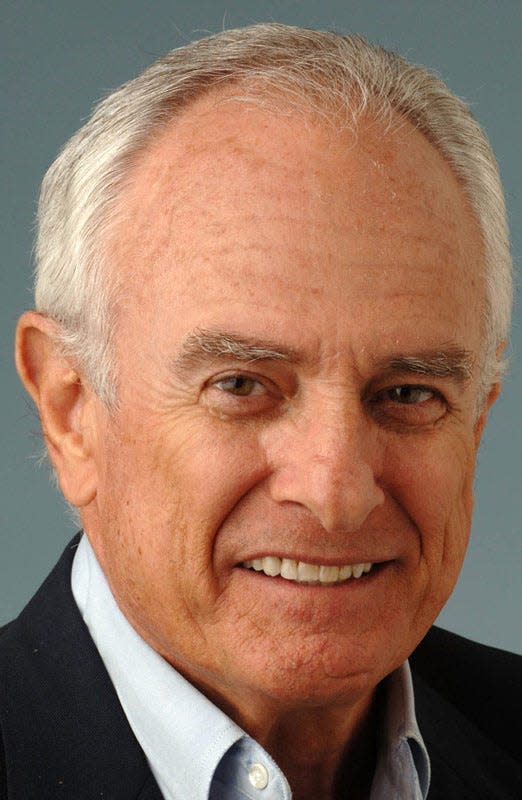Sports halls of fame can be judged by who is left out as much as who got in | Loran Smith
Halls of fame are often distinguished by who they keep out more so than who they induct.
When he was long in the tooth, Spurgeon Chandler, a Carnesville native who was the most valuable player in the American League in 1943, was deeply saddened by the fact that he had not been elected to the Baseball Hall of Fame.
He had very good credentials, which included playing on six World Series teams for the New York Yankees as a pitcher and being selected for the American League All-Star team four times.
He was as good of a fielding pitcher as there was in the big leagues and even hit a grand slam. In his final years, Spud lived out his life in Clearwater, Florida, as a major league scout.

After spending an afternoon with Ted Willaims, I called Spud to tell him about our conversation. Ted was very clear with his viewpoint that Spud “belonged in the hall of fame.” When I told Spud, based on my conversation with Ted, that I held the view that the Veterans Committee might bring about his selection, Spud said, “Well they better hurry.” Then he broke down crying.
Spud’s name is still missing from the membership rolls in Cooperstown. Many more “Spud Chandler omissions” exist along with some who made the cut with suspect resumes, such as those who got in with steroid taint.
Most experts seem to think that accomplished players such as Barry Bonds, Roger Clemens, Sammy Sosa, and others can only hope that the Veterans Committee will make their day at some point in the future. Then there is Pete Rose, who was guilty of betting on his own team. I have known writers who have a vote who say Rose will never get elected.
With all the proliferation of latent gambling in society, you would think that someday Pete’s great career as a hitter would trump his bad habits and bring about election into the Hall.
In the days of the old Fulton County Stadium, forerunner of Turner Field, I used to go over to the Reds’ locker room and engage Pete in conversation. He loved being at the ballpark and would get there early. He was very approachable. After a few visits with him as he learned of my affiliation with the University of Georgia, he said one day: “What kind of guy is Vince Dooley?”
My response was essentially the long-time Bulldog coach thought that the surest and safest way to win was to run the football, play defense and underscore the kicking game.
More: Spring Training Baseball: A trip down memory lane with Loran Smith
Pete’s response to that was, “He sure beats the spread a lot.”
He didn’t care about Vince’s predilection for the running game, keep it close and win games in the fourth quarter. What he was most interested in was obvious.
Ted Williams also thought that Shoeless Joe Jackson belonged in the Hall. With Shoeless Joe’s remarkable hitting ability, some say he was the most natural hitter ever to play the game.
If you Google his name and read his personal accounting of the so-called “Black Sox” scandal, he tells an interesting story of his innocence, but all efforts to clear his name have ended up in futility.
This summer when the new class of inductees gathers in Cooperstown, more than likely there will be considerable attention paid to Pete Rose’s situation. There are some who would support his reinstatement, but all commissioners to date have refused.
Rose violated MLB Rule 21, which was put in following the scandal of 1919 which says: “Any player, umpire, or club or league official or employee, who shall bet any sum whatsoever upon any baseball game in connection with which the bettor has a duty to perform shall be permanently ineligible.”
Every time I go into a big league locker room, I see MLB Rule 21 posted “loud and clear” somewhere prominently. So, Pete knew about Rule 21, but he arrogantly ignored it and now wants baseball to say, “All is forgiven.”
I thought about all this driving home from Macon last weekend following the induction ceremony of the Georgia Sports Hall of Fame in which Georgia’s Claude Felton was enshrined as a contributor.
Felton had been tapped previously for induction but refused to accept the invitation to be inducted. Even this body, which does not elicit national headlines, has a long roster of “hopeful” candidates.
People across the state are being promoted for induction and Claude Felton refused to be inducted at least a half-dozen years. Then I thought about all halls of fame; modesty is not a condition for election. If that were the case, Felton could have been a charter member.
This article originally appeared on Augusta Chronicle: Loran Smith debates who should be in sports halls of fame
